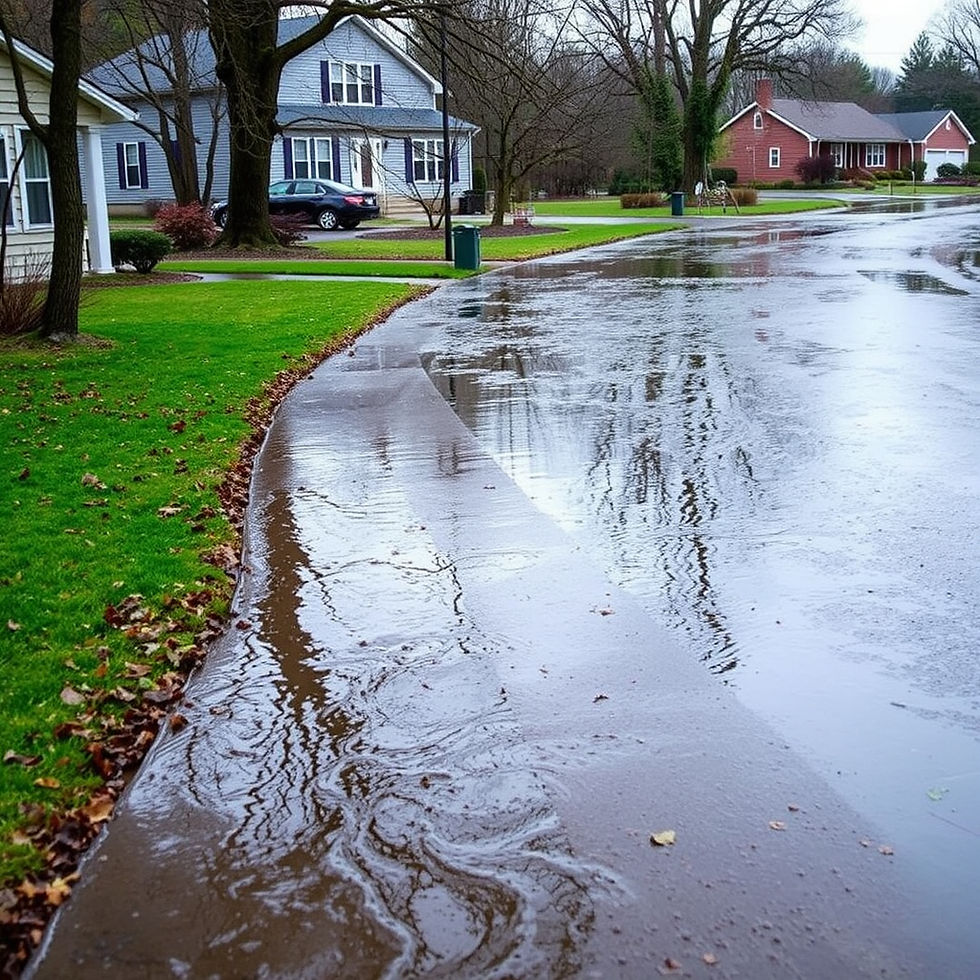Common Signs Your Air Conditioner Needs Servicing
- Jayant Upadhyay
- Aug 6
- 4 min read

Table of Contents
Introduction
Why Regular Servicing Matters
15 Common Signs Your AC Needs Servicing
Weak Airflow
Warm Air Coming Out
Strange Noises
Unpleasant Odors
High Humidity Levels
Frequent Cycling
Water Leaks Around the Unit
Ice Build-Up on Coils
Unresponsive Thermostat
Rising Energy Bills
Tripped Circuit Breakers
Uneven Cooling
Old or Dirty Air Filters
AC Blowing Hot Air at Night
AC Unit is Over 10 Years Old
DIY Troubleshooting Tips
When to Call an HVAC Professional
Preventative Maintenance Tips
Conclusion
1. Introduction
Your air conditioner plays a crucial role in maintaining a comfortable indoor environment—especially during hot summers. But like all mechanical systems, it can develop issues over time. Recognizing early warning signs can help you avoid costly repairs and extend the life of your unit.
In this comprehensive guide, we’ll walk you through common signs that your AC needs servicing, tips for troubleshooting, and how to keep it running efficiently year-round.
2. Why Regular Servicing Matters
Routine maintenance can prevent minor issues from becoming major breakdowns. Here's why it's important:
Energy Efficiency: A well-maintained AC uses less electricity.
Longer Lifespan: Servicing prolongs the life of your system.
Improved Air Quality: Clean filters and coils mean healthier air.
Cost Savings: Preventative care reduces repair bills.
Ignoring servicing could lead to poor performance, health risks, and higher expenses in the long run.
3. 15 Common Signs Your AC Needs Servicing
1. Weak Airflow
If your AC is blowing very little air or it's weaker than usual, you may have:
Clogged filters
Ductwork issues
Failing compressor or motor
It may also indicate blockages in the vents.
2. Warm Air Coming Out
When your system is blowing warm air instead of cool, it's a clear red flag. Potential causes:
Low refrigerant
Thermostat malfunction
Compressor failure
This sign calls for immediate servicing.
3. Strange Noises
Unusual noises like:
Grinding
Squealing
Banging
Clicking
These sounds may indicate loose parts, fan problems, or electrical issues.
4. Unpleasant Odors
Bad smells from vents can be due to:
Mold or mildew in the system
Clogged filters
Burnt-out wiring
It affects both health and comfort.
5. High Humidity Levels
Your AC should remove humidity. If your home feels damp:
Check if the unit is too small
Dirty evaporator coils
Low refrigerant levels
High humidity fosters mold growth.
6. Frequent Cycling
If your AC frequently turns on and off:
It may be oversized
Thermostat might be faulty
Filters could be dirty
Short cycling reduces efficiency and increases wear.
7. Water Leaks Around the Unit
Leaks or moisture near your system could mean:
Blocked drain lines
Broken condensate pump
Frozen coils
Left unchecked, this can lead to water damage.
8. Ice Build-Up on Coils
Ice or frost on indoor coils can result from:
Restricted airflow
Low refrigerant
Dirty coils
It reduces cooling efficiency and must be fixed immediately.
9. Unresponsive Thermostat
When the thermostat doesn’t match the room temperature:
Batteries may need replacing
Sensors might be faulty
It may require recalibration
An HVAC tech can assess and fix it.
10. Rising Energy Bills
A sudden spike in your utility bills could mean:
Your AC is overworking
Dirty coils and filters
Leaky ducts
Servicing can identify the inefficiencies.
11. Tripped Circuit Breakers
If the circuit breaker trips repeatedly:
Compressor might be overheating
Short circuits in the unit
Electrical overload
Don't ignore this—it's a serious issue.
12. Uneven Cooling
If some rooms are cooler than others:
Ductwork may be blocked
Vents might be closed or obstructed
Thermostat placement can be off
Zoning problems should be addressed by pros.
13. Old or Dirty Air Filters
If you haven’t changed your filters in months, you’ll notice:
Poor airflow
Dust accumulation
Allergens in the air
Filters should be replaced every 1–3 months.
14. AC Blowing Hot Air at Night
Nighttime performance issues could mean:
Thermostat scheduling conflicts
Compressor stress from daytime use
Electrical issues due to voltage changes
It’s important to have it checked.
15. AC Unit is Over 10 Years Old
Older systems lose efficiency and require more frequent repairs. Consider:
Replacing with an ENERGY STAR unit
Upgrading to a smart thermostat
Annual inspections
4. DIY Troubleshooting Tips
Before calling a professional, try these:
Check the thermostat – set it to “cool” and ensure it's not in “fan only” mode.
Replace filters – easy fix for many performance issues.
Inspect the outdoor unit – clear debris and make sure nothing is blocking airflow.
Clean vents and registers – dust buildup reduces efficiency.
Look for frozen coils – turn off AC and let it defrost before turning it back on.
If the problem persists, professional help is required.
5. When to Call an HVAC Professional
You should contact an HVAC expert if:
DIY efforts don’t fix the issue
There are electrical smells or sounds
Water is leaking from the unit
Ice is forming on coils regularly
Unit is not cooling despite proper settings
Professional servicing includes refrigerant checks, coil cleaning, thermostat calibration, duct inspections, and overall system diagnosis.
6. Preventative Maintenance Tips
Avoid emergency repairs with the following:
Schedule annual servicing before summer
Change air filters every 1–3 months
Clean vents and ducts seasonally
Check insulation around refrigerant lines
Use a programmable thermostat
Keep outdoor unit clean and free of leaves/debris
Listen for unusual noises and act early
Proactive care leads to better performance and peace of mind.
7. Conclusion
Your air conditioner is an investment in comfort, health, and productivity. Catching early signs of trouble—like poor airflow, strange noises, or rising bills—can save you from major breakdowns. Regular servicing by trained HVAC professionals ensures your system runs smoothly, efficiently, and lasts for years.
If your AC is showing any of the signs mentioned, don’t delay—schedule a professional service before it gets worse. A little attention today can save you a lot tomorrow.



Comments